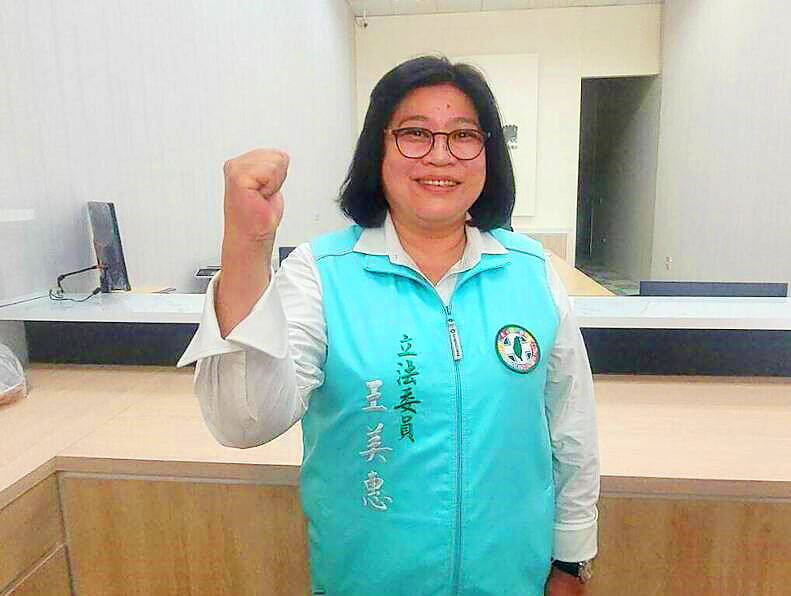China’s Taiwan Affairs Office (TAO) issued a statement yesterday to endorse its collaboration with the Chinese Nationalist Party (KMT) for cross-strait relations based on the so-called “1992 consensus,” and opposing Taiwan independence.
The release came following a meeting between KMT Deputy Chairman Andrew Hsia (夏立言) and TAO Director Song Tao (宋濤) on Wednesday in Yuncheng City in Shanxi Province, China, as Hsia leads a KMT delegation for a week-long visit to attend business forums and political talks in the country.
Song quoted in the statement saying: “We shall work together with the KMT and other political parties on Taiwan Island, along with organizations having the common political stance, to carry out works for cross-strait peace and returning to the correct path. Together we can achieve long-lasting prosperity and well-being for the revitalization of the Chinese race.”

Photo: Wang Shan-yan, Taipei Times
Song said the common stance of the Chinese Communist Party (CCP) and the KMT is based on opposing Taiwan independence, and upholding the “1992 consensus,” which refers to a tacit understanding between the CCP and the KMT that both sides of the Strait acknowledge there is “one China,” with each side having its own interpretation of what “China” means.
The ruling Democratic Progressive Party (DPP) does not acknowledge the “consensus,” which former KMT official Su Chi (蘇起) in 2006 said that he made up in 2000.
The TAO statement quoted Hsia as saying: “Currently the cross-strait situation is quite severe, and the KMT is willing to enhance collaboration with the CPP, based on the ‘1992 consensus’ and opposing Taiwan independence. We shall strive for peace and prosperity for our compatriots across the Taiwan Strait.”
In the release, Song also was quoted as saying: “Taiwan’s separatist forces are forging links with outside forces, to provoke conflict for their separatist goals, which have harmed the interests of Taiwan compatriots, undermined stability across the Strait. Taiwan has to choose between war and peace, and to have prosperity or economic decaying.”
Hsia and the KMT delegation started their China trip on Monday to meet with Chinese officials, and also to attend the opening of a business forum in Taiyuan City in Shanxi Province on economic opportunities for Taiwanese companies and Taiwanese youth to do business in Shanxi.
DPP Legislator Wang Mei-hui (王美惠) slammed Hsia for “complying with” all demands by Chinese officials.
“If Hsia believes having political consensus with the CCP is so great, then he should move to China,” Hsia said. “He should not continue to collect his pension issued by Taiwan government.”
Wang said: “We [the DPP] request the KMT to stop bashing and antagonizing Taiwan. The so-called ‘1992 consensus’ was made up, in the collusion by the KMT and the CCP, and Taiwanese have never agreed to it, since it compromises our nation’s sovereignty and self-governance.”
Hsia has visited China three times this year. His first trip was in February, and he visited several cities and met with top CCP officials in Beijing. Then he represented the KMT at China’s Straits Forum in Xiamen in June.

Alain Robert, known as the "French Spider-Man," praised Alex Honnold as exceptionally well-prepared after the US climber completed a free solo ascent of Taipei 101 yesterday. Robert said Honnold's ascent of the 508m-tall skyscraper in just more than one-and-a-half hours without using safety ropes or equipment was a remarkable achievement. "This is my life," he said in an interview conducted in French, adding that he liked the feeling of being "on the edge of danger." The 63-year-old Frenchman climbed Taipei 101 using ropes in December 2004, taking about four hours to reach the top. On a one-to-10 scale of difficulty, Robert said Taipei 101

Nipah virus infection is to be officially listed as a category 5 notifiable infectious disease in Taiwan in March, while clinical treatment guidelines are being formulated, the Centers for Disease Control (CDC) said yesterday. With Nipah infections being reported in other countries and considering its relatively high fatality rate, the centers on Jan. 16 announced that it would be listed as a notifiable infectious disease to bolster the nation’s systematic early warning system and increase public awareness, the CDC said. Bangladesh reported four fatal cases last year in separate districts, with three linked to raw date palm sap consumption, CDC Epidemic Intelligence

US climber Alex Honnold left Taiwan this morning a day after completing a free-solo ascent of Taipei 101, a feat that drew cheers from onlookers and gained widespread international attention. Honnold yesterday scaled the 101-story skyscraper without a rope or safety harness. The climb — the highest urban free-solo ascent ever attempted — took just more than 90 minutes and was streamed live on Netflix. It was covered by major international news outlets including CNN, the New York Times, the Guardian and the Wall Street Journal. As Honnold prepared to leave Taiwan today, he attracted a crowd when he and his wife, Sanni,

Taiwanese and US defense groups are collaborating to introduce deployable, semi-autonomous manufacturing systems for drones and components in a boost to the nation’s supply chain resilience. Taiwan’s G-Tech Optroelectronics Corp subsidiary GTOC and the US’ Aerkomm Inc on Friday announced an agreement with fellow US-based Firestorm Lab to adopt the latter’s xCell, a technology featuring 3D printers fitted in 6.1m container units. The systems enable aerial platforms and parts to be produced in high volumes from dispersed nodes capable of rapid redeployment, to minimize the risk of enemy strikes and to meet field requirements, they said. Firestorm chief technology officer Ian Muceus said